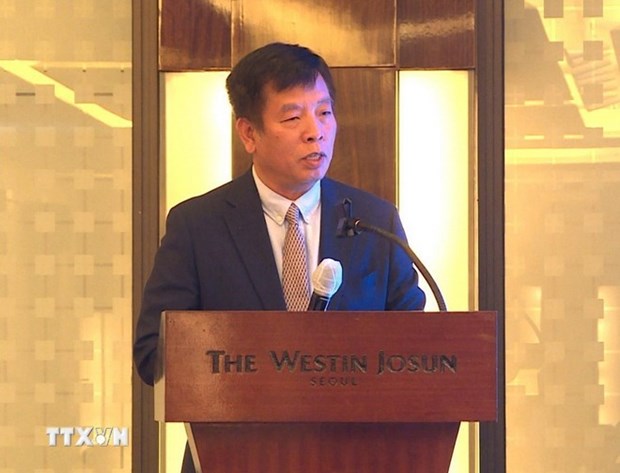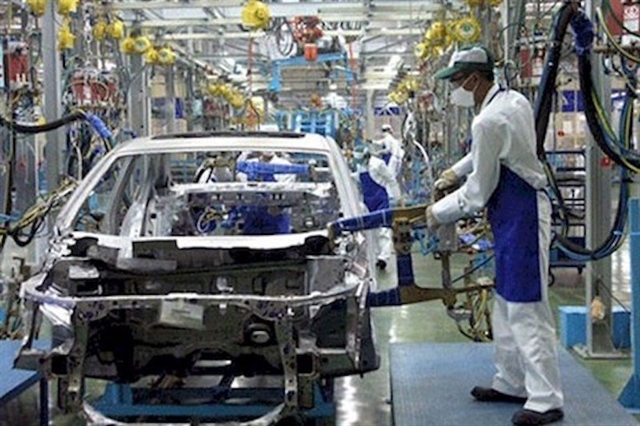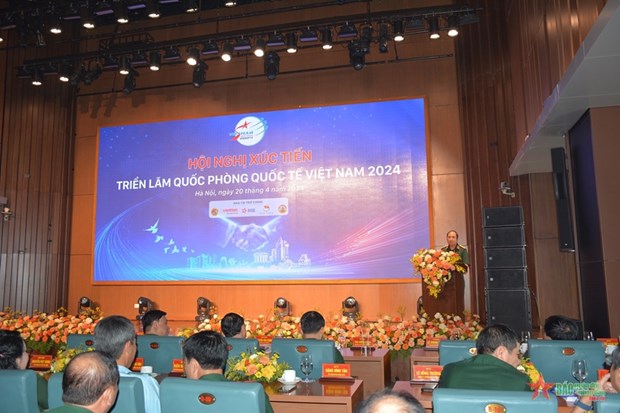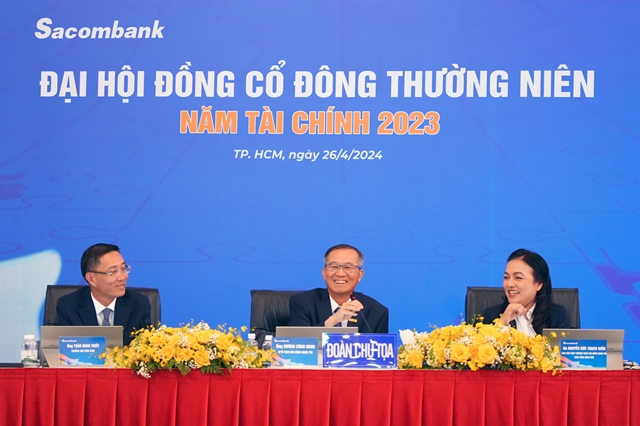 Economy
Economy

Small- and medium-sized enterprises play a vital role in national development, Vietnamese and German politicians said in Hà Nội yesterday, during a dialogue between the Communist Party of Việt Nam and the Social Democratic Party of Germany (SPD).
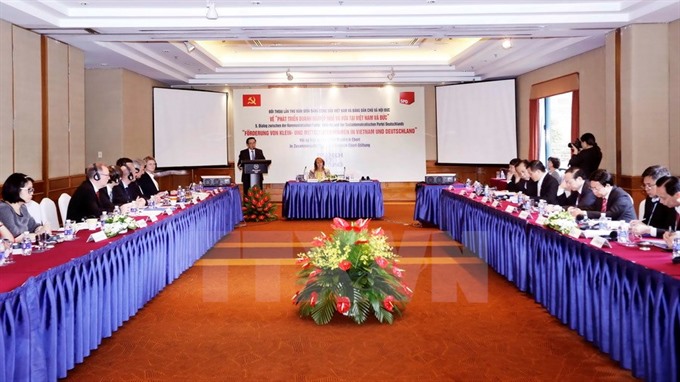 |
| Small and medium-sized enterprises play a vital role in national development, Vietnamese and German politicians said in Hà Nội yesterday, during a dialogue between the Communist Party of Việt Nam and the Social Democratic Party of Germany (SPD). — VNA/VNS Photo An Đăng |
HÀ NỘI — Small and medium-sized enterprises play a vital role in national development, Vietnamese and German politicians said in Hà Nội yesterday, during a dialogue between the Communist Party of Việt Nam and the Social Democratic Party of Germany (SPD).
“Creative and innovative, small- and medium-sized enterprises (SMEs) foster economic growth and facilitate sustained development in social and ecological aspects,” said Edelgard Bulmahn, Vice President of the German Parliament.
According to Bulmahn SMEs are a backbone of the German economy, accounting for 90 per cent of all enterprises and generating jobs for 60 per cent of total workers.
“Our major enterprises--such as Mercedes and BMW--have close linkage with SMEs, forming value-added chains. Without smaller firms, the large companies would not be able to grow as they are now,” she said.
Bulmahn said the European Union – Việt Nam Free Trade Agreement, set to come into force in 2018, would benefit businesses from Việt Nam and Germany.
She hoped that the two countries would implement agreements on vocational training and recycled energy development to take advantage of co-operation opportunities.
According to Hoàng Bình Quân, chief of foreign affairs at Việt Nam’s Party Central Committee, SMEs are driving start-up movements and stepping up national participation in global value chains, and the National Assembly is considering passing a law to support them.
Roughly 400,000 SMEs, or more than 90 per cent of businesses nationwide, contribute about 40 per cent to the gross domestic product and create jobs for more than half of the labour force in Việt Nam.
“SMEs are the main engine of the domestic economy,” he said.
Quân said Việt Nam considered global economic integration a major factor that would help it transition to an industrialised modern country.
In addition to joining the World Trade Organisation (WTO), Việt Nam entered 16 free trade agreements with nearly 60 countries and territories. It aims to fully perform commitments within the WTO and the agreements between now and 2020.
However, Việt Nam stays low in rankings of institutional capacity and infrastructure, technology and enterprise development levels compared to peers.
According to Global Entrepreneurship Monitor 2015, a resource on entrepreneurship for key international organisation, the ratio of Vietnamese adults intending to start a business over the next three years is 24 per cent. The figure is an average 44 per cent in countries with similar development levels.
Around 21 per cent of SMEs in Việt Nam take part in global value chains, compared to 30 per cent in Thailand, or 46 per cent in Malaysia.
According to Quân productivity of domestic enterprises remains limited due to underdeveloped technology and low management standards, while many policies to assist them are inefficient.
Enterprises still witness complex administrative procedures and unequal conditions in approaching resources to do business, while competition pressure and technical barriers are increasing at home and in export markets.
“The government must thoroughly support enterprises. It should back them in science and technology application, establish proper legal frameworks for creative and innovative activities and promote participation in public projects,” said Bulmahn.
Encouraging competition among innovators and boosting education and training for better human resources were especially important in fostering businesses, she said.
“A challenge for SMEs is to become familiar with digitalisation,” said Sabine Poschmann, who represents SMEs on behalf of the SPD in the German Parliament. “I know that the Vietnamese Party and Government is working with all their might to adapt enterprises to this process.”
Nguyễn Văn Thạo, Vice President of Việt Nam’s Central Theoretical Council, said SME assistance measures are expected to be extended with strength over the next few years, after the law regulating the support is adopted next year. — VNS



